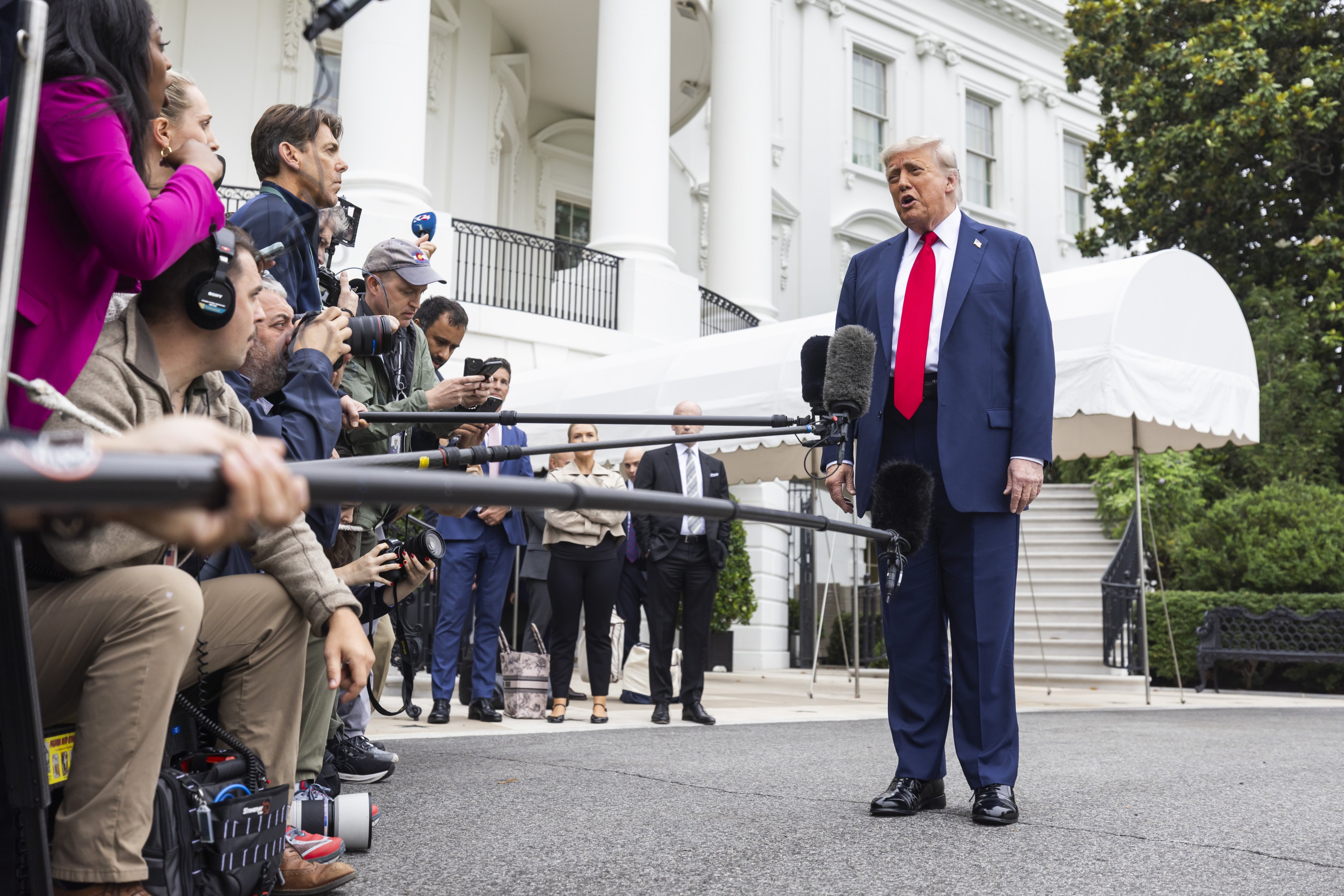How Trump has landed the US in a strategic mess from Ukraine to Iran
For all his bluster, he has failed to broker peace in Ukraine even as Israeli strikes dashed any chance of a nuclear deal with Iran

Just four months ago, US President Donald Trump was lecturing a surprised Volodymyr Zelensky on how the Ukrainian leader was “not winning” because he did not “have the cards”. As commander-in-chief of a superpower, Trump unabashedly brandished his geopolitical capital – apparently more interested in negotiating agreements with traditional US rivals such as Russia and Iran to bolster his “art of the deal” credentials.
Today, the strategic picture looks dramatically different. Following the spectacular success of Operation Spider’s Web, which saw Ukrainian forces launching devastating drone attacks from within the heart of Russia, Kyiv seized the strategic initiative against the Kremlin.
Trump, meanwhile, has struggled to translate his geopolitical capital into concrete gains. Despite his promise to swiftly finalise new deals with Russia and Iran, and repeatedly promising a new era of peace to his “Make America Great Again” (Maga) base, the situation has escalated in traditional theatres of conflict.
Showing little appetite for compromise, Russia has stepped up its attacks on Ukrainian cities. Worse, Trump’s nuclear negotiations with Iran were torpedoed by Israel’s attack on Tehran’s nuclear facilities and critical infrastructure, provoking yet another major conflict in the Middle East.
Having cards is one thing. Playing them skilfully is another. Not unlike his trade policy track record, Trump has gradually found himself in new strategic quagmires, which could ultimately strengthen its chief rivals, namely Russia and China.
It’s impossible to understand the direction of American politics over the past decade, and the meteoric rise of Trump, without taking into account the overwhelming public dissatisfaction with the ruling elite.
Against the backdrop of devastating Bush-era wars in the Middle East and the subsequent impunity of “fat cat” bankers in the wake of the 2008 global financial crisis, the American establishment seemed unaccountable and out of touch for countless voters. The upshot has been a populist backlash, primarily weaponised by Trump’s Maga movement.
Unsurprisingly, protectionism and pacifism have become the fundamental foreign policy thrust of the second Trump administration, which is packed with neo-isolationist loyalists and Maga royalty. “America first” is primarily about rebuilding the country’s battered manufacturing base as well as ditching costly international obligations.
But Trump’s track record in translating his country’s strategic “cards” into gains has been sketchy. Despite the bluster of his first term, he was notoriously ineffectual in coaxing major trading partners into any lasting compromise. Nor did he manage to bring Iran to the negotiating table despite his “maximum pressure” campaign. His even more quixotic diplomatic flirtation with North Korea only revealed the depth of the strategic deadlock on the Korean peninsula.
Populist leaders often raise the right questions about a broken status quo, but what ultimately matters are their professed solutions. This is particularly crucial in matters of war and peace. For any “big deal” diplomacy to work, there must be a combination of timing, leverage and a modicum of credibility and trust.
Credibility and trust were clearly missing in what, until recently, seemed Trump’s most promising diplomatic gambit: negotiating a new nuclear deal with Iran. After weeks of negotiations and increasingly granular technical discussions, Israel’s attack on Iran severely undercut the prospects of a negotiated peace.
Instead of chiding the attacks, which clearly caught Iran off guard, Trump stood by the US ally. This reinforced the lingering perception in Tehran of a potential strategic ruse, further undermining diplomatic trust despite a desperate call for de-escalation from all major regional players, including Turkey, Saudi Arabia and Egypt, as well as top US allies in Europe and Asia.
As in the Ukraine crisis, the unfolding crisis in Iran has revealed how the Trump administration either shuns coordination with the relevant allies – with major European countries frozen out of negotiations with Iran – or fails to exercise leverage over a dependent ally, which torpedoed promising nuclear talks. Potential US involvement in yet another conflict in the Middle East, however, would have larger global consequences.
More immediately, it puts the Ukraine conflict on the back burner, as Russia potentially leans into the Iran-Israel conflict as a mediator while grinding on with its military operation in Europe. To bog down the West, which has heavily supported Kyiv over the past three years, the Kremlin may even mull quietly aiding its Iranian allies, should hostilities evolve into yet another major war of attrition.
Iran may even target US bases and partners in the Persian Gulf and close the Strait of Hormuz in desperation. The consequences would be dire, triggering energy price hikes and a global recession. If Trump sleepwalks into a major conflict in the Middle East while failing to end the Ukraine war, China is likely to emerge as the ultimate strategic winner.
An energy crisis or the loss of Iran as an ally would be a huge blow. Amid a new cold war, however, China stands to gain from a distracted and bogged-down America, which recently redeployed major naval assets from the South China Sea to the Middle East. It can also make discoveries about the vulnerabilities of Western weapons systems in conflicts involving strategic partners in Moscow and Tehran.
With any semblance of a rules-based international order withering away, Beijing may also find a unique opportunity to consolidate its position in contested adjacent waters at the expense of frontline US allies, even kinetically enabling reunification with Taiwan.
Lording over a global empire, Trump may have had all the cards in the world. But what matters is how you use them – ideally, systematically and responsibly – especially in a new age of uncertainty.